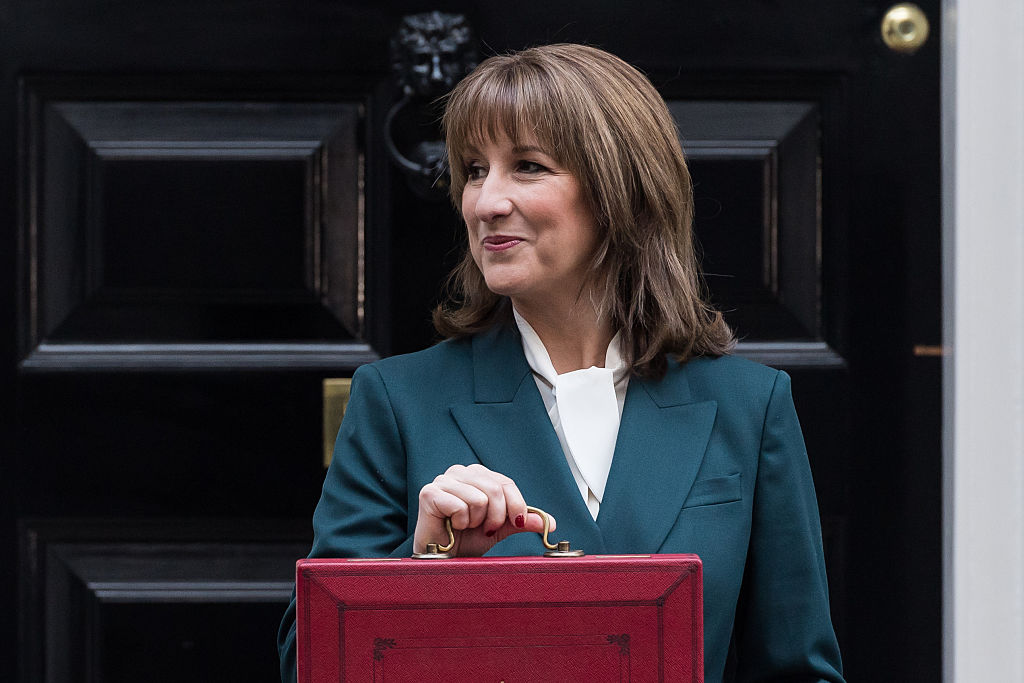Why the government must stop meddling in the property market
The government has come up with plenty of wheezes for making homes affordable. It’s time to try the radical alternative, says Matthew Lynn – just leave things alone, step back and watch the improvement.


Get the latest financial news, insights and expert analysis from our award-winning MoneyWeek team, to help you understand what really matters when it comes to your finances.
You are now subscribed
Your newsletter sign-up was successful
Want to add more newsletters?

Twice daily
MoneyWeek
Get the latest financial news, insights and expert analysis from our award-winning MoneyWeek team, to help you understand what really matters when it comes to your finances.

Four times a week
Look After My Bills
Sign up to our free money-saving newsletter, filled with the latest news and expert advice to help you find the best tips and deals for managing your bills. Start saving today!
Rishi Sunak has a new wheeze for making homes affordable again. On Monday, the government launched a new guaranteed mortgage scheme. Anyone borrowing up to £600,000 will be able to get a 95% loan, with the state backing a slice of that to allow banks and building societies to increase the amount they lend without having to worry about defaults.
In fairness, it’s not a completely crazy idea. Raising the deposit for the first property is often the hardest task for anyone getting on the property ladder, especially if they don’t have any help from their parents. If they only have to save 5%, then with £15,000 they can purchase a £300,000 home. Once that is completed, it will get a lot easier to buy the next one. With interest rates so low, and unemployment under control, it is unlikely to end up costing the government much: a guarantee only matters if people start to default, and there is not much sign of that happening. But there’s a problem.
Pouring petrol on a housing boom
Prices are already very frothy. According to Rightmove, the average asking price for a home in the UK has risen to an all-time high of £327,000. It has risen by 2.1%, or £6,700, in the last month alone. Just as significantly, the number of homes on the market has dropped to a two-year low, while a quarter of properties are selling within one week of coming onto the market. In other words, the market is pumped up, boosted by a resilient economy, breaks on stamp duty, low interest rates and lots of cheap fixed-rate mortgage deals. It is not the time to be throwing subsidised money at the market. It is just going to create a bubble.
MoneyWeek
Subscribe to MoneyWeek today and get your first six magazine issues absolutely FREE

Sign up to Money Morning
Don't miss the latest investment and personal finances news, market analysis, plus money-saving tips with our free twice-daily newsletter
Don't miss the latest investment and personal finances news, market analysis, plus money-saving tips with our free twice-daily newsletter
Perhaps more importantly, the entire property market is in a state of rapid flux. The Covid-19 crisis has accelerated changes to the way we use space by a decade or more. In January, the percentage of shopping done online hit 36%, double what it had been a year earlier. That may fall back a little as lockdown is eased, but retailing is not likely to return in anything like the same form.
The government is already relaxing planning restrictions so that many former high streets can be turned into a mixture of leisure and residential space, with the result that a lot more apartments are going to become available as old shops get converted. It may not be long before the retail parks go the same way. We may not like the idea of living in a B&Q shed right now, but a generation ago we would have said the same thing about a warehouse along the Thames: apartments in what were once industrial buildings now change hands at £1m a time.
Lots of skyscrapers are suddenly going to be half-empty, too – Canary Wharf is already looking to switch one planned office block into apartments instead, and is working out how to turn a place where people just work into somewhere they live and have fun too. Other landlords and property companies will be reaching the same conclusion.
There is nothing wrong with that. For years, the UK has not built enough new homes, and the ones we have built are not as big as they should be (and if everyone is working from home two or three days a week they will need more space). We may finally be about to see a vast new amount of residential space coming onto the market as shops and offices get converted, and that will change the market completely, and in ways that no one can predict right now.
A bewildering merry-go-round
The government needs to let these trends work themselves out. Chancellors have been coming up with schemes for housing for 30 years. Stamp duty has gone up, then down again. Help-to-buy wheezes have been and gone. Landlords have been helped with tax breaks, then whacked over the head. Mortgages have been subsidised, punished, controlled, and then liberalised all over again. It has been a bewildering merry-go-round, none of which appears to have done much good. Right now, the market is already booming, and the way we use the land and buildings available to us is changing very quickly. The government should try something genuinely radical – leaving the market alone, and seeing if it can improve all by itself.
Get the latest financial news, insights and expert analysis from our award-winning MoneyWeek team, to help you understand what really matters when it comes to your finances.

Matthew Lynn is a columnist for Bloomberg and writes weekly commentary syndicated in papers such as the Daily Telegraph, Die Welt, the Sydney Morning Herald, the South China Morning Post and the Miami Herald. He is also an associate editor of Spectator Business, and a regular contributor to The Spectator. Before that, he worked for the business section of the Sunday Times for ten years.
-
 Pitch to Portfolio: Lioness Jill Scott's investing game plan
Pitch to Portfolio: Lioness Jill Scott's investing game planPodcast After bringing football home as a Lioness, Jill Scott discusses how she transformed her finances and became an investor in this latest episode of MoneyWeek Talks.
-
 UK unemployment hits highest level since 2021 – will interest rate cuts follow?
UK unemployment hits highest level since 2021 – will interest rate cuts follow?UK unemployment reached its highest rate in almost five years by the end of 2025. Is AI to blame and will the Bank of England step in with an interest rate cut in March?
-
 'Expect more policy U-turns from Keir Starmer'
'Expect more policy U-turns from Keir Starmer'Opinion Keir Starmer’s government quickly changes its mind as soon as it runs into any opposition. It isn't hard to work out where the next U-turns will come from
-
 8 of the best properties for sale with indoor gyms
8 of the best properties for sale with indoor gymsThe best properties for sale with indoor gyms – from a four-storey mews house in London’s Knightsbridge, to a 1920s Arts & Crafts house in Melbury Abbas, Dorset
-
 8 of the best houses for sale with beautiful fireplaces
8 of the best houses for sale with beautiful fireplacesThe best houses for sale with beautiful fireplaces – from a 15th-century cottage in Kent to a 17th-century palazzo in Oxfordshire
-
 8 of the best ski chalets for sale now
8 of the best ski chalets for sale nowThe best ski chalets on the market – from a traditional Alpine-style chalet in Switzerland to an award-winning Modernist building in Japan’s exclusive ski areas
-
 The consequences of the Autumn Budget – and what it means for the UK economy
The consequences of the Autumn Budget – and what it means for the UK economyOpinion A directionless and floundering government has ducked the hard choices at the Autumn Budget, says Simon Wilson
-
 8 of the best houses for sale with electric vehicle charging
8 of the best houses for sale with electric vehicle chargingThe best houses for sale with electric vehicle charging – from a converted World War II control tower in Scotland, to a Victorian country house in Cumbria
-
 Profit from a return to the office with Workspace
Profit from a return to the office with WorkspaceWorkspace is an unloved play on the real estate investment trust sector as demand for flexible office space rises
-
 8 of the best properties for sale with wildlife ponds
8 of the best properties for sale with wildlife pondsThe best properties for sale with wildlife ponds – from a 16th-century house in the Ashdown Forest, to a property on Pembrokeshire’s Preseli Hills